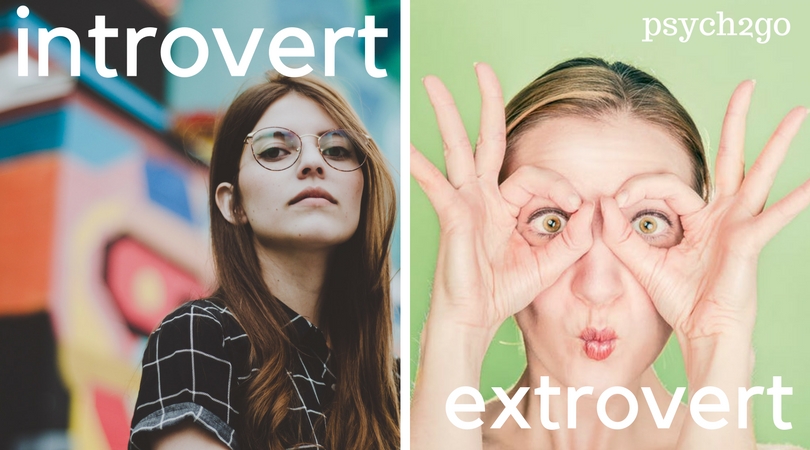Introvert or Extrovert? You Choose!

 Carl Jung believed that people have opposing qualities; such as, introversion and extroversion, but what does it mean to be an introvert or extrovert? Well, Jung described introverts as people who center their energy, ideas, and thoughts inward. While extroverts center their energy outwards, towards others and the outer world. He realized that introversion and extroversion is just a small part of our personality.
Carl Jung believed that people have opposing qualities; such as, introversion and extroversion, but what does it mean to be an introvert or extrovert? Well, Jung described introverts as people who center their energy, ideas, and thoughts inward. While extroverts center their energy outwards, towards others and the outer world. He realized that introversion and extroversion is just a small part of our personality.
This is why Jung identified two opposing mental functions that are used to take in information; which are, sensing perception and intuitive perception. Sensing perception is the process of collecting information through our five senses. Intuitive perception is the process by which we make connections and deduce meanings. Not only did he identify these mental functions, but he also described two opposing functions that we use to evaluate information with. These are: Thinking and feeling judgement. Thinking judgement is the process we use to evaluate information by applying logical criteria and feeling judgement is the process we use to evaluate information by considering what is important.
These four mental functions are used within introversion and extroversion. Here is table to further explain how these functions work:
|
Functions |
Attitudes | |
|
Introvert |
Extrovert |
|
|
Thinking |
Inward focus on through finding the logical principles behind phenomena. | Outward focus on applying logical order through building structure, organization and making decisions.
|
|
Feeling |
Inward focus on felt values that seeks harmony through alignment of personal behavior.
|
Outward focus on building and seeking harmony with others and alignment with openly expressed values.
|
|
Sensation |
Inward focus on sensory experiences and factual historical data.
|
Outward focus on gathering factual data and sensory experiences.
|
| Intuition | Inward focus on symbols, meanings, insight and patterns that come up from the unconscious. | Outward focus on the new possibilities and meanings. |
Introversion and extroversion is a complex topic, but it is easier to find out which of these you are by noticing where you gain and lose energy. For example introverts are drained by people and need alone time to recharge. While extroverts are the opposite. I personally am an introvert because although I crave for the outer world I need my alone time to recharge. Are you an introvert or extrovert? Let me know what you think about this topic by commenting on the bottom.
References:
Dicaprio, N.S. (1989). Personality Theories. Mexico: McGRAW-Hill
MBTI. http://mbtitoday.org/carl-jung-psychological-type/
Susan, C.C. (2003). Personality Theories. Mexico: Pearson





I think that there are degrees of intensity of all facets of the human condition. Mostly I am introvert, however there are times I need company. Mostly I prefer being alone and thinking but then there are times when I let rip with expression of my thinking at some event. When I choose to be the center of attention I do dominate the conversation, and dictate the terms of debates; but then I need to go away and consider everything I heard and adapt my ideas. While I can function in a social sense I know introverts who dread social event and become sick at the thought of attending christmas parties. I also know extroverts who cannot function independantly as well as extroverts who function very effectively on their own, extroverts tend to function to have company, introverts tend to function in company to be alone, at highly individual levels of desire for what they want.
Thanks for sharing your comment with us Ian. For sure, people are a lot more complicated than just extroversion or introversion. Glad you see that as well:)